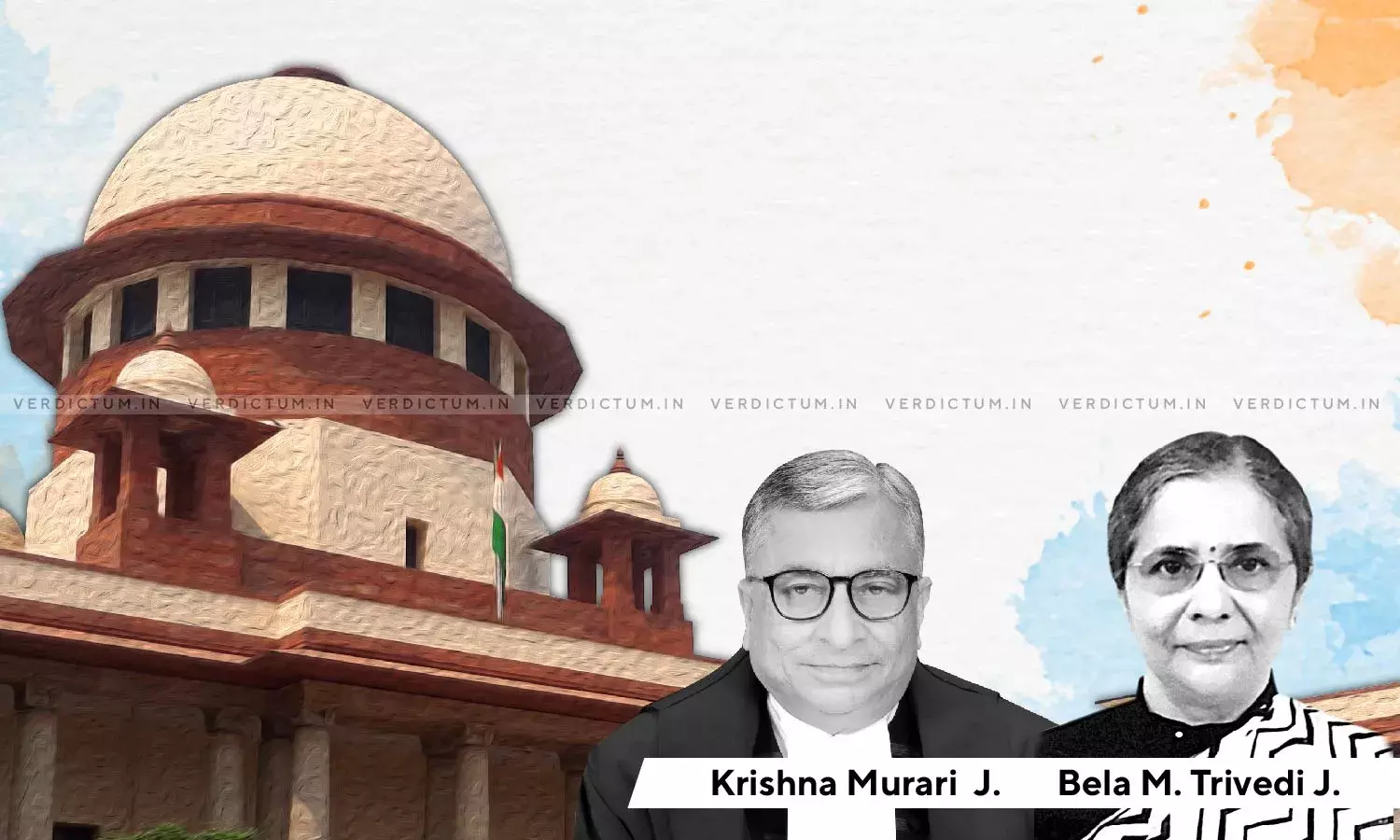Accusation Of Non-Disclosure Can Only Be Made If There Is Requirement To Disclose: SC While Dismissing Appeals By CBIC

The Supreme Court while dismissing the appeals preferred by the Commissioner of Central Excise and Customs held that the demands were time-barred and period of extended limitation cannot apply.
The two-judge Bench of Justice Krishna Murari and Justice Bela M. Trivedi held that” In any scheme of self-assessment it becomes the responsibility of the assessee to determine his liability of duty correctly. This determination is required to be made on the basis of his own judgment and in a bonafide manner”.
Further, the Bench said “The extent of disclosure that an assessee makes is also linked to his belief as to the requirements of law. An assessee can be accused for suppressing only such facts which it was otherwise required to be disclosed under the law.”
AOR Mukesh Kumar Maroria appeared for the Appellants while Senior Advocate Shyam Divan appeared on behalf of the Respondents.
In this case, an appeal was filed against the order of the Customs, Excise & Service Tax Appellate Tribunal (CESTAT), Ahmedabad passed on March 17, 2009. A similar appeal involving dealing with related central issues was clubbed with the current appeal. “Civil Appeal Nos. 6033/2009 and 5714/2011 are the same, they are being adjudicated upon by this common order”.
Coming to Civil Appeal No. 6033/2009, challenging the order of CESTAT which by a majority of 2:1, allowed an appeal filed by the Respondent-Assessee against an order of the Commissioner of Central Excise, Rajkot.
The Commission of Central Excise invoked the extended period of limitation available under the proviso to Section 11A (1) of the Central Excise Act, 1944. It was alleged that the assessee had incorrectly determined the assessable value of its finished goods by not including therein the monetary value of the duty benefits that it had obtained from its customers as a result of the transfer of the advance licenses.
The period in question for the said assessment was from September 2000 to March 2004. A Show Cause Notice was issued on September 28, 2005 relying upon the Supreme Court’s Judgment in IFGL Refractories Ltd ([2001 (134) ELT 230]) in which it was held that monetary value of duty benefits obtained through the transfer of advance licenses held by the customers constituted additional consideration flowing to the assessee from such customers.
The CESTAT in the IFGL case held that duty benefits received by an assessee under the duty exemption scheme announced by the Government cannot be considered as part of the consideration flowing from the buyer, either directly or indirectly. Even though the order of the Tribunal was reversed by this Court in 2005, in the present case for the period of 2000-2004, the view taken by the Tribunal in IFGL's case held the field and thus provided the basis for the assessee’s approach of determining the assessable value was in accordance with law.
The allegations in the notice were confirmed by the Commissioner in his order dated October 30, 2006, wherein the assessee’s defense on merits as well as on limitation was rejected. The Order by the Commission was challenged in CESTAT which accepted the appeal, therefore, the Appellant approached the Apex Court.
The Bench after perusing the submissions referred to the provisions of Section 11 A of the Central Excise Act, 1944, which deals with the issue of limitation for issuing show cause notices for recovery of duties which have been short paid or short levied, is the governing law in the present case.
The Court held that “The assessee's conduct during the material period i.e. between 2000 to 2005 cannot be considered to be malafide when it merely followed the view taken by the Tribunal in IFGL's case. An assessee can be accused for suppressing only such facts which it was otherwise required to be disclosed under the law. The assertion that there was suppression of facts is therefore clearly not tenable.”
For the Civil Appeal No. 5714/2011 that pertains to a different plant of the Assessee-Respondent where clearances were affected during the period January 2001 to November 2003, the Court held that “Our conclusions with regard to Civil Appeal 6033 of 2009 apply equally to this appeal. In the result both the appeals filed by the Revenue are dismissed on the ground that the demands are time barred.”
Accordingly, the Court dismissed the appeals.
Cause Title: The Commissioner, Central Excise and Customers, and Anr. v. M/S Reliance Industries Ltd.

